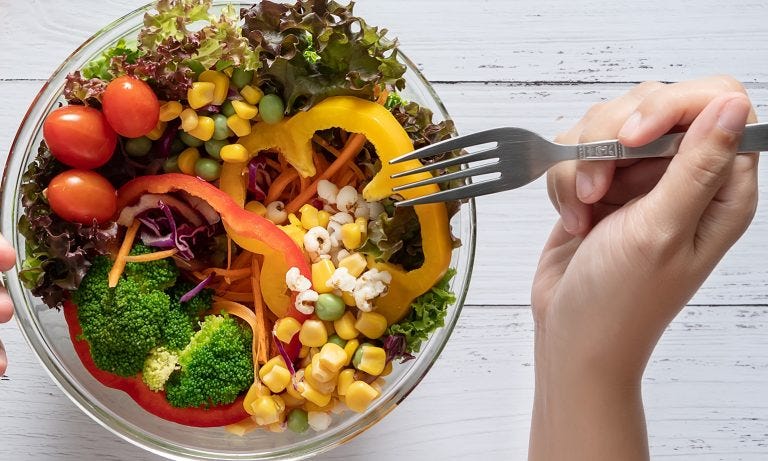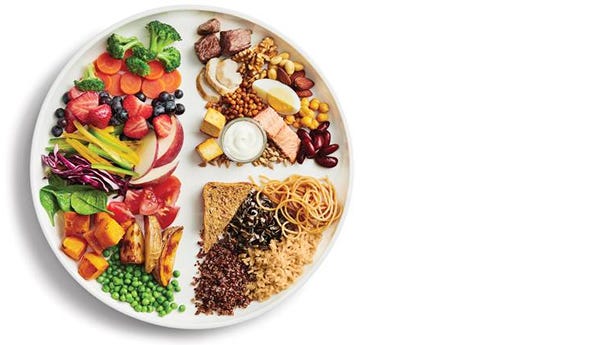Modern “Healthy Diets” Are Not Supportive of Pregnancy
Nutrient bioavailability is rarely considered in mainstream nutrition recommendations, and time-tested pregnancy foods are omitted from the discussion.
This is the second article from my series called "a heretic take on pregnancy nutrition.” Part one of the series focuses mostly on myths around pregnancy weight gain, caloric recommendations, and what dictates successful pregnancy outcomes more than weight.
Here is what pops up as some of the first hits when I type “healthy diet” into Google Images:
This is probably what many people picture when someone mentions “healthy eating.” It’s no wonder that so many believe that a “healthy diet” has no notable effects on health if what they consider “health food” is what’s pictured above. It makes sense that a person’s health won’t improve when eating a “famine diet” and believing it to be healthy.
Dr. Thomas Brewer was a long-time obstetrician and pregnancy nutrition expert back in the 1960s. He devoted his career to trying to develop a nutrition plan for optimal pregnancy outcomes. After seeing countless women in his practice experience complications, miscarriages, and even death caused by malnutrition, he wanted to ensure that women receive sound dietary advice for pregnancy.
When Dr. Thomas Brewer was practicing medicine, it was during a time when most women suffered from malnutrition not due to bad nutritional advice but due to poverty. The women that were wealthy subsided on foods such as lean meat, dairy, eggs, potatoes, and fruit. These women rarely had severe pregnancy complications. Women in poverty that could not afford a “nutritious diet,” subsided mostly on beans, lentils, seeds, rice, occasional scraps of lard, and black coffee for breakfast. These women had the most severe pregnancy complications. Yet now, in 2022, when most of us can afford milk, eggs and meat, we are often told to avoid those foods and to instead follow “plant based” diets of whole grains, beans and seeds, and black coffee for breakfast (“intermittent fasting”), as the pinnacle of health.
Issues with mainstream “health foods”
I want to share a few thoughts on why I don’t consider many of the mainstream “health foods” to be healthy, especially during a time as demanding and transformative as pregnancy. To start, let me lay out some criteria for how I would classify a food as a “superfood” or “health food.”
The food provides a good “return on investment,” aka it takes a small number of calories to digest and in return provides ample calories for the body.
The food is abundant in vitamins and minerals.
The vitamins and minerals in the food are highly bioavailable.
The food lacks or is remarkably low in toxic compounds.
The food is supportive of metabolic function.
Here is how so many of the mainstream “superfoods” fail these criteria:






